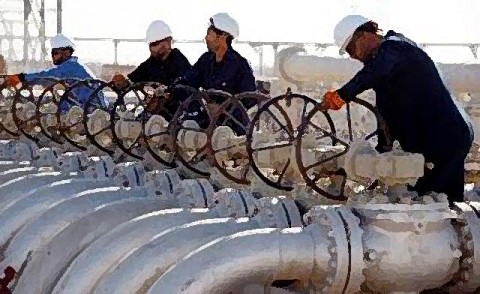By Haore Burhan:
Compared to other regions around the world, we can see a quite distinctive gap regarding gender equality in the Middle East. For decades, historians, scientists and researchers claimed and believed that the main reason behind gender inequality in the Middle East was Islam. The dominant religion in the Middle East, Islam, was seen as the major obstacle in the way of women that affected their role in politics and led to a notable level of gender inequality. Only recently researchers have started to recalculate their claims and assumptions about this.
As the ‘Oil Curse’ came to be discussed around the world in the 21st century, researchers started to notice its negative impacts not only on corruption, democracy and civil wars but also on women. Recently it has been argued in some quarters that the main trigger behind gender inequality and the major obstacle in front of women’s role in politics in the Middle East is actually oil and not Islam. How has oil been able to affect women’s role and maximize gender inequality? Due to oil’s extractive nature, just like the other minerals, it’s an industry that fosters gender inequality. Women are not usually taken seriously in this field due to their ‘soft’ nature compared to men, presumably. Thus, oil has reduced the number of women in the labor force.
An example that shows that Islamic traditions are not the main reason behind gender inequality is the comparison of Morocco with Algeria. Both are neighboring countries in the Middle East following Islamic traditions. However, women in Morocco have much more social and political rights compared to women in oil-abundant Algeria. When women are excluded from the labor force, it usually happens that they become household wives. They do not have jobs, and they are usually excluded from education, as it is not deemed necessary since they would not be allowed to work anyway.
What logically follows is that women then have one job, one function; they become solely a machine for producing children. Islam does not have much to do with this, and Islam does not declare that women should not work or that they should not be educated. A religious duty of the Muslims is educating themselves, regardless of their genders, and regardless of whether some groups claim that women should not be educated. One could argue that this tendency of preventing women from studying stems from the cultural background of the society, a patriarchal culture, not an Islamic culture. Having said this, women then give birth to multiple children. What follows is population growth, and where is a greater population, there tends to be be less economic growth compared to a population that grows more slowly and steadily.
Excluding women from the labor force simply results in inequality, for they come to be perceived as useless beings who cannot do anything. The only thing she can do is to give birth, albeit presumably a noble pursuit for the nation and for herself by becoming a good mother. The oil industry excludes women from the labor force as they are deemed soft and physically incapable handling such industrial and laborious jobs. It is oil, not Islam that is to blame.
Haore Burhan is an undergraduate student at the American University of Sulaimani/Iraq, majoring in International Studies and minoring in Economy.
.jpg)



